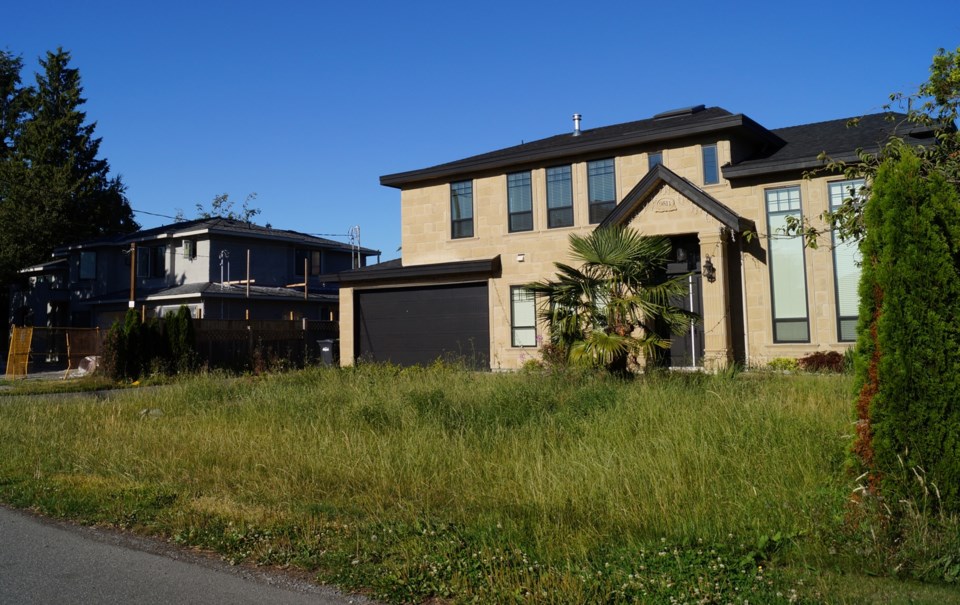A motion to have City of Richmond staff examine a City of Vancouver report on empty homes was defeated by Coun. Bill McNulty and Mayor Malcolm Brodie at a planning committee.
Coun. Carol Day tabled the motion last month to have Richmond planners examine how Vancouver was approaching the matter, as it has recently passed a new tax targeting some home owners who leave their homes vacant.
McNulty said he opposed the motion because Vancouver’s assessment and subsequent tax proposal is unique to Vancouver and not applicable to Richmond.
“What Vancouver does is by themselves. Vancouver does a lot of strange things, what with their charter. It’s often not in sync with what we do,” said McNulty.
Vancouver does, in fact, have special authorities under the provincial Vancouver Charter, whereas Richmond — like all other municipalities in B.C. — must abide by the Community Charter, which guides municipal taxation and bylaws. However, authorization from the provincial government was still required for Vancouver to implement its empty homes tax plan, much like it would be required if Richmond were to choose to do the same thing.
“Council has not asked staff to consider such a tax, which would require approval by the provincial government, as was the case in Vancouver,” said Day.
“My purpose was to get staff to look at how, and if, the vacancy tax could work for Richmond, but council had no appetite for that, so they would only agree to send the report to staff for information,” added Day.
“If we were to analyze anything, let’s look at what we have at home,” said McNulty, who acknowledged, when asked, empty homes are a problem in Richmond.
The issue is seen by some as one piece of the affordable housing puzzle in the region, as homes left empty by real estate investors/speculators limit housing supply.
Aside from Day, only Coun. Harold Steves has openly indicated support for such a measure, or, at least, examination of the scope of the problem in Richmond.
Brodie has stated he doesn’t think the tax will work, as enforcement may prove difficult.
Steves said he agrees, at first glance.
“I think there could be problems with it. But at least let us examine it,” said Steves.
Vancouver’s tax has a series of limitations. It attempts to address matters such as snowbirds who may leave Vancouver for six months at a time, thus making their homes appear empty, when, in fact, they are not.
Many empty houses are reported in West Richmond, and numerous condos in City Centre also appear empty. MLS sales data shows close to half of all sales in Brighouse were of apartments listed as “vacant,” according to Richmond realtor Steve Saretsky.
Group counts ‘lonely homes’
A new citizen group based in Vancouver is asking residents to report vacant homes at its interactive website.
“Lonely Homes is a group of friends who are concerned about affordability in Greater Vancouver and decided to take action to drive positive change,” said Christine Boehringer, founder of Lonely Homes, via a statement.
“All we ask is for people to monitor their own neighbourhoods and take two minutes of their time to report lonely homes. This information will help our local governments take action,” she said.
Boehringer contends lonely homes inflate housing prices, raise property taxes, increase theft and vandalism, contribute to homelessness, and lead to loss of natural areas through urban sprawl. “If renters could move into these lonely homes, it could help relieve the tight housing situation,” she noted.
To report a “lonely home” one can enter the information at LonelyHomes.ca. The data collected will be used to provide counts of lonely homes in Greater Vancouver by postal code to local governments. The street address data will remain private, noted Boehringer.



